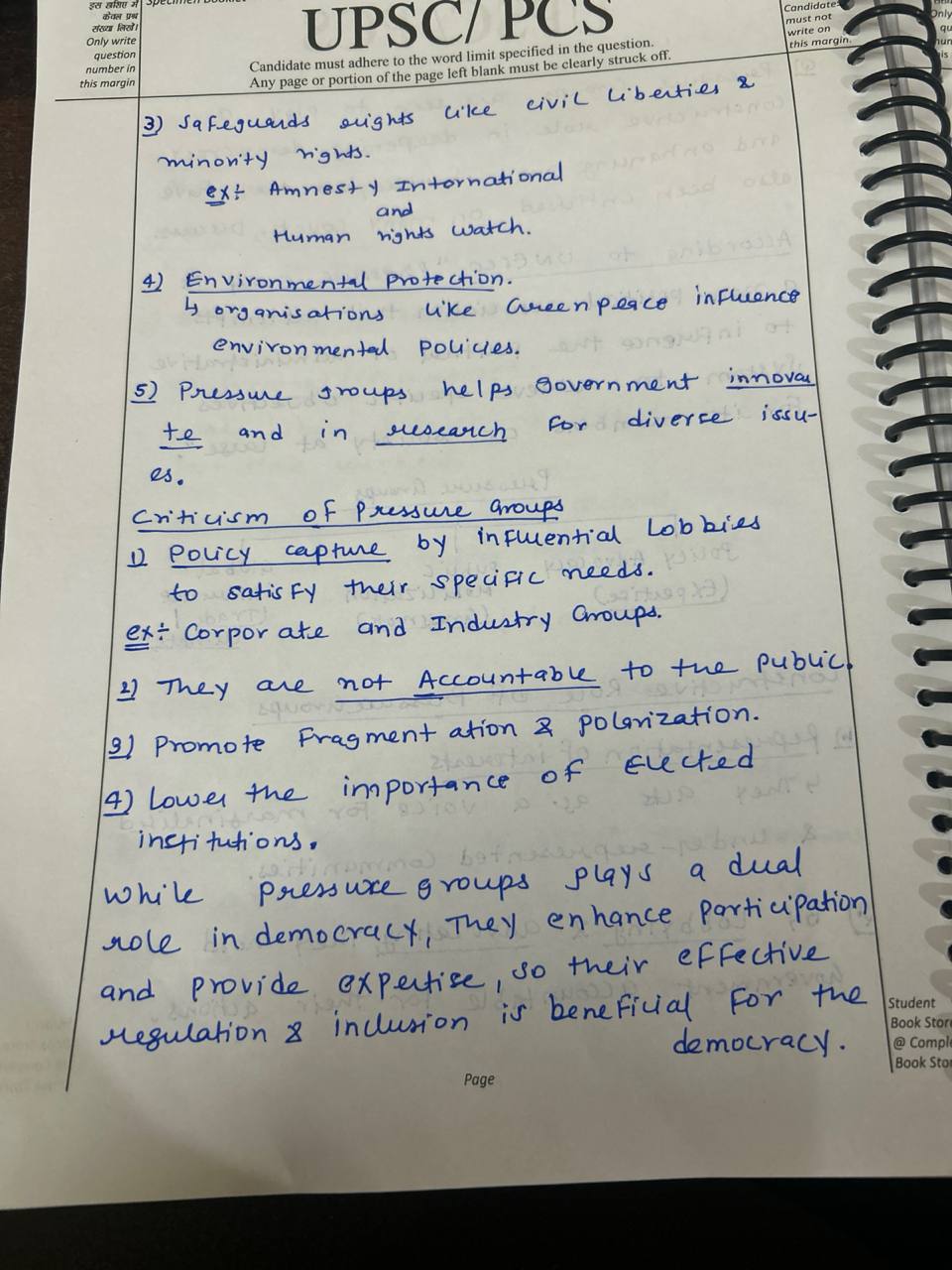Although they have been attacked extensively, pressure organizations are thought to contribute positively to the advancement of democracy and our rights. Talk about.
A pressure group is an interest group organised to promote the interests of its members and influence the policies of the government without seeking to exercise the formal powers of the government. They use instruments like lobbying, campaigns, polls etc. Role of pressure groups in ensuring participRead more
A pressure group is an interest group organised to promote the interests of its members and influence the policies of the government without seeking to exercise the formal powers of the government. They use instruments like lobbying, campaigns, polls etc.
Role of pressure groups in ensuring participative democracy in India include:
- Participation of citizens in a democracy is often limited to elections. Pressure groups keep the government in touch with the public opinion in between elections and provide representation to a wide range of diverse interests and opinions.
- They promote and facilitate participative development thereby creating conditions for people’s empowerment and deepening of democracy. E.g. Janaagraha Centre for Citizenship and Democracy is making efforts to improve the quality of life in urban areas by catalysing a systemic change through participatory forms of governance.
- Pressure groups give political voice to minority groups and articulate their concerns like Naz Foundation’s advocacy of rights of the LGBT community.
- They reveal the corrupt practices of the government and demand good governance. For instance. India Against Corruption under the anti-corruption movement in 2011, led to establishment of Lokpal and Lokayukta.
- They provide alternative platforms to citizens to redress grievances and hold the government responsible. For example, the Mazdoor Kisan Shakti Sangathan led a people’s movement demanding accountability, which eventually led to the passage of the Right to Information Act, 2005.
- Pressure groups have relentlessly led movements to safeguard the environment and natural resources. These include the Chipko Movement, Narmada Bacho Andolan and the Appiko Movement.
- Competing pressure groups ensure that no group or interest remains dominant. For instance, India has several trade unions that represent the interests of its members such as Bharatiya Mazdoor Sangh, All India Trade Union Congress etc.
Pressure groups are, therefore, considered an indispensable element of the democratic process, especially, in a highly diverse society like ours, where individuals cannot pursue their interests on their own and need the support of others placed in similar situations to gain greater bargaining power. The presence of pressure groups in a polity reflects its political maturity and inclusive nature, where everyone has a right to influence the policies of the government.
See less


See less